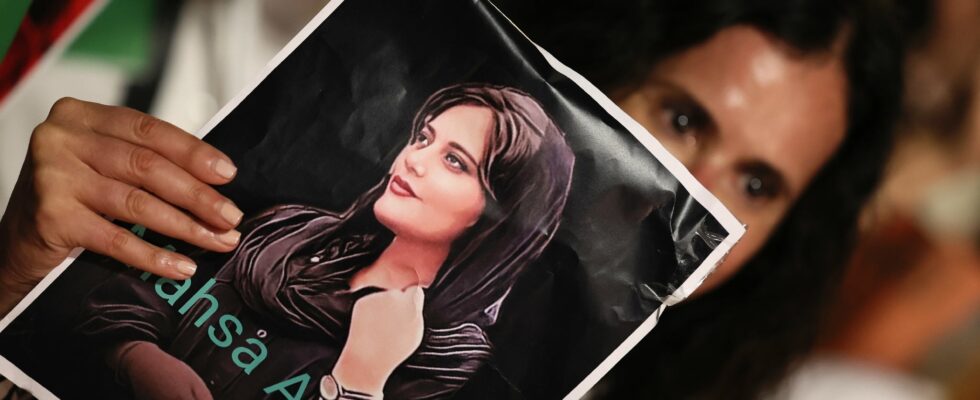As the Olympic and Paralympic Games have just ended, making every French person vibrate with joy according to the values of fraternity, courage, inclusion and equality between all, we can only be moved by the fate of these female athletes who remind us of the relentless fight that we must lead to combat violence and oppression against women.
Her name is Rebecca Cheptegei, a Ugandan marathon runner in Paris 2024, killed by her partner last week in Kenya, a country where in 2022, at least 34% of women reported having suffered physical violence.
Her name is Marzieh Hamidi, an Afghan refugee athlete who continues to live in Paris under threat. Exiled to flee the Taliban, she remains a target, highlighting that oppression does not stop at borders.
Her name is Jina Mahsa Amini, a 22-year-old Iranian Kurd, who was arrested by police in Tehran on September 13, 2022, for allegedly ignoring Iran’s strict veiling laws. She died in hospital three days later as a result of physical abuse she suffered while in police custody.
Mobilization against theocracies that trample on women’s rights is an essential moral and political requirement in a world that claims to be committed to the universal values of human rights. These regimes, often rooted in rigid and regressive interpretations of religion, impose a system of systematic oppression that marginalizes, violates, and silences millions of women by denying their freedom, autonomy, and humanity. Afghanistan under the Taliban is a flagrant example of this. Women there are reduced to invisible shadows, without the right to education, work, or even to simply express their voices in public. The ban on Afghan women singing or speaking in the street embodies absolute repression, an institutionalized gender apartheid.
France must protect these women
It is imperative to remember that the cause of women under theocratic regimes is a universal cause. In France, the country of human rights, it is crucial that the Republic does not give in. It must protect these women, offer them a space where they can live freely. France must have the mission, on its territory as well as on the international scene, to defend fundamental freedoms against all forms of obscurantism. This includes support for persecuted women, but also vigilance against fundamentalist excesses that could infiltrate French territory.
Indeed, it is equally essential to denounce and combat the organizations, media and personalities that relay, even in France, the ideologies of these theocratic dictatorships. By spreading their propaganda, modulating their criticism, and prioritizing human rights violations, these actors participate in justifying the violence against women.
Historically committed to defending the rights and emancipation of the oppressed, secular and republican associations and left-wing forces must take a clear and strong position against these theocratic regimes. This implies not only supporting Afghan and Iranian women, and more generally all those who fight against these oppressive regimes, but also promoting firmer diplomacy, targeted international sanctions, and an unconditional welcome for persecuted refugees.
The Republic must be a firm and determined bulwark
Why is the Revolutionary Guard Corps not yet classified as a terrorist organization by the Council of Europe, in the same way as Hamas? For weeks, months, we have been shouting WOMAN, LIFE, FREEDOM without our governments taking the measure of the humanity that is at stake behind it. How can we explain that Canada included it, on June 19, 2024, on its list of organizations considered terrorists and not our European democracies?
The fight against gender apartheid is a question of consistency with our republican principles of liberty, equality and secularism. The time for its recognition by international bodies, as many NGOs are demanding, has come. In the meantime, the Republic must be a firm and determined bulwark against all forms of oppression and injustice, particularly those that feed on patriarchy and religious obscurantism.
* Cécile Fadat is a specialist educator and assistant to the town hall of Condat (Vienne); Cécile Soubelet is a consulting director and member of the Socialist Party; Camille Vizioz-Brami is a press officer and councilor for the 9th arrondissement of Paris
First signatories:
Nadège Azzaz, Mayor of Châtillon
Karim Bouamrane, Mayor of Saint-Ouen
Geneviève Couraud, activist, general secretary of NEGAR-Support for women in Afghanistan.
Michael Delafosse, Mayor of Montpellier
Carole Delga, President of the Octan region
Ayda Hadizadeh, MP for Val-d’Oise
Nicolas Mayer Rossignol, mayor of Rouen
Laurence Rossignol, senator for Val-de-Marne
Ariel Weil, Mayor of Paris Centre
